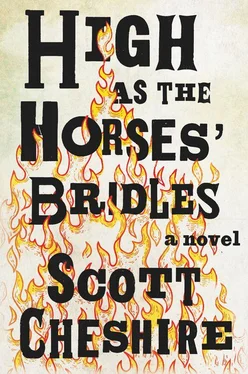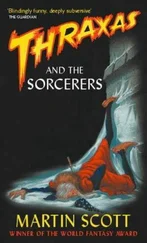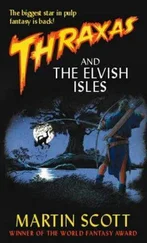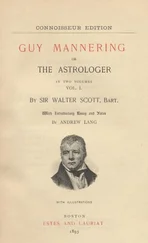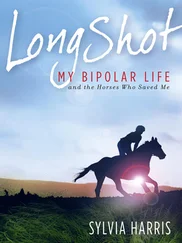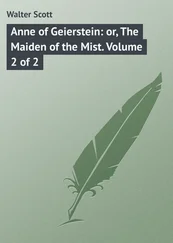It was almost surreal. The new Laudermilk family.
I can see it now like a photograph, Mom, her head just above water, in a way. We had no idea she’d get so sick again. Dad in his Sunday suit. The two of them pleased in every way, almost overly so, trying so hard to get it right, because their son left once before, and this was the woman who brought him back and made them a family again.
Sarah said, “I’m a translator.”
We all stopped, froze for a second, and then broke into such lovely and comfortable laughter because how strange was it that this was the first thing she’d said, that this was the first time they’d heard Sarah’s voice, that we’d been in their home for five or ten minutes, and that all of the emotion welling up and spilling over was directly because of her, because she had softened me toward them and they knew it, and maybe “softened” is the wrong word, she made me better understand them and myself is what I mean to say, and the first thing she says sounds so unlike something one says in a room so emotional. And then said the second thing she’d ever said to them — a loving creative lie, and I loved her for it — she said: “So, Gill, or Dad — do I say Dad? Dad? Ah! All Josie talks about is you since I met him. Dad this, and Dad that, do you know?”
My father was always many things, contradictory things, but never a fool.
He took her face in his hands again. He kissed her cheeks, one and two, and he said, almost whispering: “Thank you.” He wiped at his eyes. “Okay, enough of this blubbering. Ida, stop crowding your son.”
“Oh shut up,” Mom said, wiping her eyes, too. “You two take your stuff upstairs, and make yourselves cozy.”
We went out to dinner that night, a local Chinese restaurant, where Dad ordered for everybody, and Mom and I talked all night about the neighborhood and how she was feeling, and I told her how good she looked—“What a stylish hat”—and she laughed. All the while Dad and Sarah talked, relentlessly talked. He wanted to know what it means to read, and reread, and translate scripture, and not believe the words you’re reading to be divinely inspired. How could that be? I heard Sarah tell him that she did think it was divinely inspired, but no more so than any other great book. This was like a different language for my father, and I think it was here, ultimately, at this very moment, at Yen Jing’s Chinese restaurant, in Queens, Dad became so taken with Sarah. He was convinced they were reaching for the very same thing, only Sarah hadn’t had the same opportunities, but the sensibility was there, and she would eventually see the truth he was trying to share with her. Sarah’s heart was at ease, however — searching, but also at ease with itself. This was something he couldn’t imagine. They were a pair that night, and it delighted both Mom and me. I can still see Dad, showing off, filling a spoon with hot Chinese mustard and swallowing it whole, his eyes tearing up, all of it a show for his new daughter. She couldn’t stop encouraging him, daring him to do other things, while casting conspiratorial looks at me, and then at him, as she waved off my attempts at conversation: You leave us be.
The phone calls started the week we got back to California.
And yet she never saw them in person again until we saw Mom at the hospital, and then the funeral. I don’t like to think about the funeral, though. But they spoke every week on the phone, sometimes several times. Sarah loved me whether I liked it or not, even when I was depressed; why was I so depressed? All of which of course made her one day stop loving me so much anymore, which makes perfect sense, now, when I think about it.
That’s a cop-out.
I knew exactly why I was depressed. I knew why I was so miserable. And I’m sounding more and more like a hagiographer here. I nominate Sarah for sainthood! Instead of a somewhat sensible ex-husband who, believe it or not, has learned a thing or two about marriage and love, I have learned this: Nobody’s perfect. Not even Sarah. Certainly not me. And more, it’s unfair to paint such an unreal picture. Worse, it’s not right, and plain inhuman to expect sainthood from someone you love.
Dad told her things he’d never told me, not once, for whatever reason — things about his own calling, even about his father. He hardly talked to me about his father, my grandfather. When I was a boy, I asked. It was natural. And he sidestepped every single time. As I got older, I got the feeling Dad felt like a disappointment to his dad. I could relate. Sarah said it had to do with what my father called my “calling.” I’d heard the phrase plenty of times, but hearing it spoken from Sarah’s mouth made it feel like a real thing in the world. No longer a family secret. Even though Dad was freely telling Sarah about his own calling, and that my grandfather had one, too, and I had no idea.
All of which eventually led to a much needed talk between Sarah and me.
This was just before 2000, and I wasn’t doing very well. I used to think a small part of me, a very small part, a piece I thought I’d flushed, deep down, thought, Who knows, maybe Josiah was right after all. Who doesn’t like to be right? And yes, there’s the untidy technicality that Armageddon could be bad news for me (which is debatable because if I had been right, then technically I would’ve survived), and more, it would be very, very bad for Sarah. For the whole world, really, but at least there would be some order in everything.
The crux really was this: if Apocalypse never did come that day, January 1—and of course I was sure that it wouldn’t — if I was wrong, I had proof. I mean, if faith ever leaves you in a flash, then this would be that day. This scared me. The day was coming soon. Who would I be? What would I believe? And, most of all, what would this final disappointment do to my father? So we talked, Sarah and I, but I didn’t tell her all of this. Not exactly. Rather I recounted what had happened on that stage. All of it. I told her about the moment, my reaching up for Heaven and receiving revelation from the Lord. I told her about the horse, and I told her none of it was real. Your husband is a failed child prophet, my dear.
She laughed, and said she wasn’t too surprised.
And so I told her more, later on, the beach, which felt right, because so many important things happened to us on that beach. It felt good to be honest (although never entirely…). And she listened. Wives do this! I told her about it over dinner, and walking on the boardwalk. I talked more that week, and the next week, I talked a lot. At brunches, and over breakfasts before I went to work, until I think before long I was becoming unbearable because that year I went from hardly talking about it with her to talking about nothing else at all.
And then came the day, 2000.
Sarah and I stayed up that night, on the beach. A bottle of champagne. Takeout tacos. And we cheered at midnight to the great messianic no-show, and howled while the fireworks broke open like neon flowers over the Pacific. Sarah poured champagne on the sand, and said, “To a shitty year.” We got very drunk that night, and convinced ourselves the new year would be new in every way imaginable.
It must have been the wine because I woke up that next morning, that first morning, and I was the same old me. No new me. I was disappointed.
We went for a walk.
It was a plainly beautiful day, brisk and bracing in that Californian January way.
“Talk,” she said.
We watched a pregnant woman at the end of a nearby cul-de-sac sweep up New Year’s confetti into a dustpan. I asked Sarah: If we had a kid, did she think I would pass on the “calling”? God forbid. I’d been wrong, and never wanted to be right. Even Dad had been wrong once. And I don’t know what year Grandpa Laudermilk put his money on, but apparently he was wrong, too. This depressed me. We went home, and I’ve been told more than once that that day was the beginning for Sarah: from then on, I became increasingly “emotionally unavailable.”
Читать дальше
